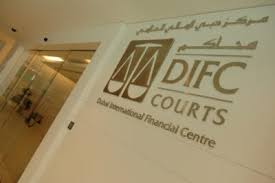
Understanding DIFC Courts: A Gateway to International Justice in Dubai
he Dubai International Financial Centre (DIFC) Courts are a unique and integral part of the UAE’s legal landscape, offering a specialized judicial system that caters to the needs of global businesses operating in Dubai and beyond. Established in 2004, the DIFC Courts are known for their independence, efficiency, and adherence to international legal standards, making them a preferred forum for resolving complex commercial disputes.
What Are DIFC Courts?
The DIFC Courts were created as part of the broader DIFC free zone, which was established to attract international financial institutions and businesses to Dubai. Unlike the UAE’s federal and local courts, which operate under a civil law system, the DIFC Courts function under a common law framework, modeled on the legal systems of England and Wales. This makes them particularly attractive to international businesses that are familiar with and trust common law principles.
Key Features of DIFC Courts
-
Common Law Jurisdiction: The DIFC Courts are one of the few jurisdictions in the Middle East that operate under a common law system. This system is characterized by the importance of case law, where past judicial decisions are used to inform future rulings. For businesses accustomed to common law, the DIFC Courts offer a familiar legal environment in which to resolve disputes.
-
Independent Judiciary: The DIFC Courts are known for their impartiality and independence. The judges appointed to the DIFC Courts are highly experienced professionals, often with significant legal backgrounds in common law jurisdictions such as the UK, Australia, and Singapore. This ensures that cases are handled with the utmost expertise and fairness.
-
Enforcement of Judgments: One of the significant advantages of using the DIFC Courts is the ease of enforcing judgments. DIFC Court judgments are recognized and enforceable across the UAE and in other jurisdictions that have reciprocal agreements with the DIFC. This global enforceability provides businesses with confidence that their legal rights will be upheld internationally.
-
Specialized Commercial Expertise: The DIFC Courts are equipped to handle a wide range of commercial disputes, including those related to banking, finance, corporate governance, real estate, and employment. Their focus on commercial law ensures that disputes are resolved by judges who understand the complexities of global business.
-
Modern Legal Practices: The DIFC Courts are at the forefront of integrating technology into the judicial process. They offer electronic case management systems, virtual hearings, and other innovative practices that streamline legal proceedings and make the court more accessible to international parties.
Why Businesses Choose DIFC Courts
For businesses operating in Dubai or engaged in international trade, the DIFC Courts offer several compelling benefits:
-
Predictability and Clarity: The use of common law provides greater predictability in legal outcomes, as cases are decided based on established precedents. This clarity is particularly valuable for businesses that need to assess legal risks and make informed decisions.
-
Confidentiality: The DIFC Courts offer a high level of confidentiality, which is essential for businesses involved in sensitive commercial disputes. Unlike some other jurisdictions where court proceedings are public, the DIFC Courts allow for proceedings to be kept private, protecting the reputations and trade secrets of the parties involved.
-
Speed and Efficiency: The DIFC Courts are known for their efficiency in handling cases, with streamlined procedures that reduce the time and cost associated with litigation. This is particularly beneficial for businesses that require quick resolutions to disputes.
-
Access to International Expertise: The DIFC Courts attract legal professionals and experts from around the world, providing businesses with access to top-tier legal advice and representation. This international expertise is crucial for navigating the complexities of cross-border disputes.
The DIFC-LCIA Arbitration Centre
In addition to its judicial functions, the DIFC is home to the DIFC-LCIA Arbitration Centre, a joint venture between the DIFC and the London Court of International Arbitration (LCIA). This arbitration center provides an alternative dispute resolution mechanism that combines the strengths of the DIFC’s legal framework with the LCIA’s international arbitration expertise.
Key Benefits of DIFC-LCIA Arbitration:
-
Neutral Venue: The DIFC-LCIA offers a neutral and independent forum for resolving disputes, which is particularly appealing to international parties.
-
Flexibility: Arbitration through the DIFC-LCIA allows for flexible procedures that can be tailored to the needs of the parties involved.
-
Enforceability: Like judgments from the DIFC Courts, arbitration awards issued by the DIFC-LCIA are enforceable in the UAE and internationally, thanks to the New York Convention on the Recognition and Enforcement of Foreign Arbitral Awards.
How Al Mazrouei Advocates & Legal ConsultantsCan Assist with DIFC Court Matters
Navigating the DIFC Courts requires specialized legal knowledge and experience. At Al Mazrouei Advocates & Legal Consultants, our team of legal professionals is well-versed in the intricacies of the DIFC legal system. Whether you are involved in a commercial dispute, require arbitration services, or need advice on legal compliance within the DIFC, we provide the expertise and support necessary to achieve favorable outcomes.
Our services include:
- Dispute Resolution: Expert representation in commercial litigation and arbitration within the DIFC.
- Legal Advisory: Comprehensive legal advice on regulatory compliance, corporate governance, and contractual matters in the DIFC.
- Arbitration Services: Representation and support in arbitration proceedings through the DIFC-LCIA Arbitration Centre.

